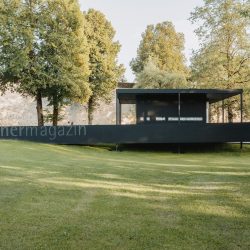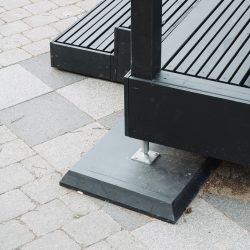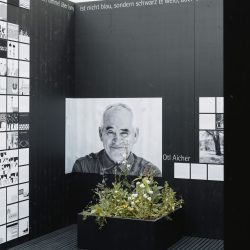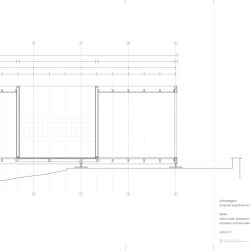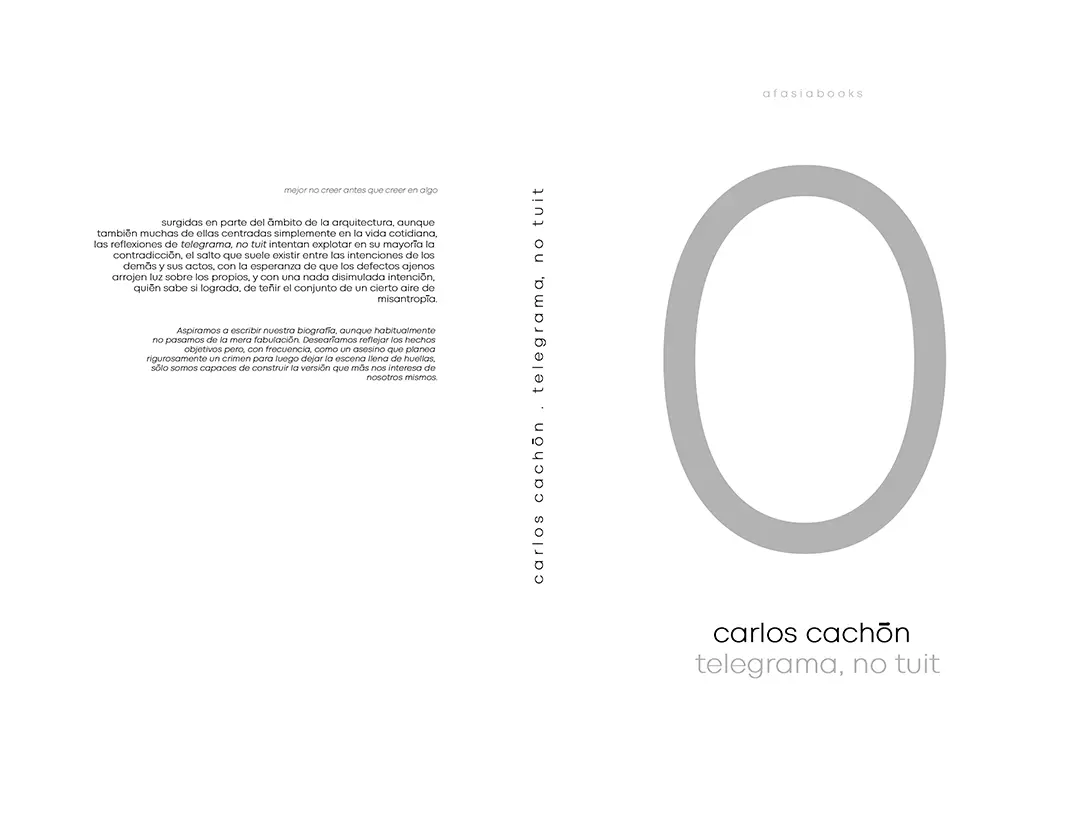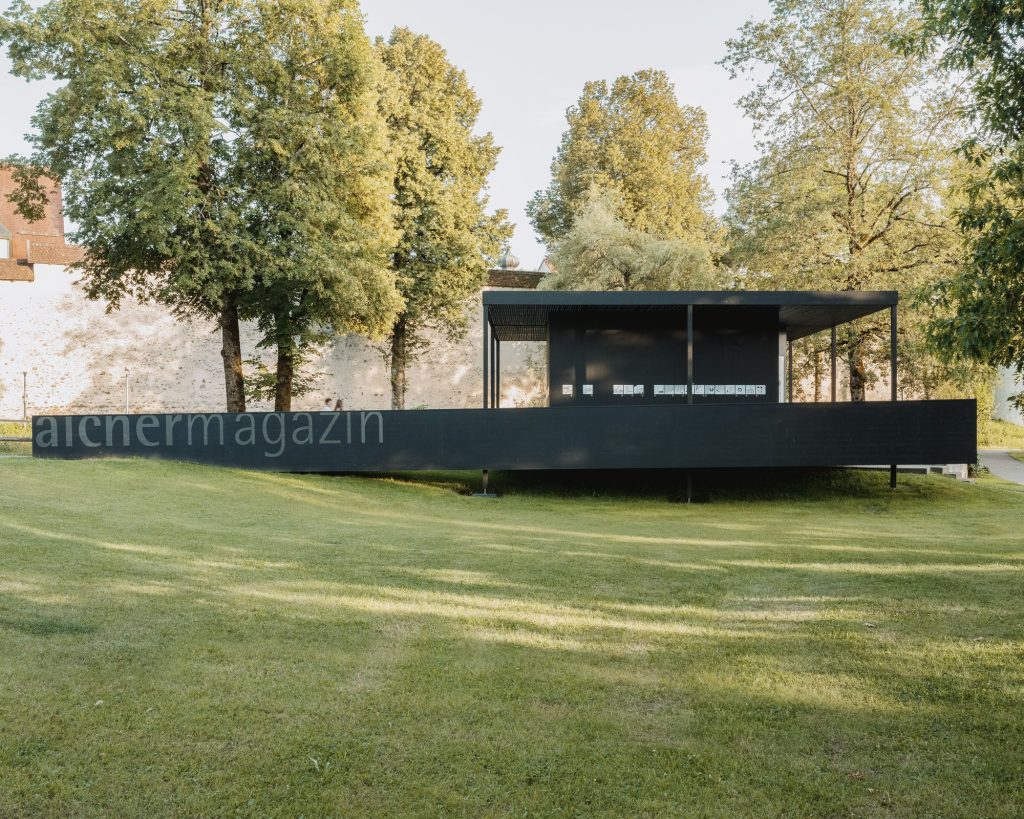
schnell & co architekturlabor . Atelier Sunder-Plassmann . photos: © Mikael Blomfelt
During the 1970s Otl Aicher developed a corporate design for the city of Isny in Allgäu, based on his image about a „city in black and white“ („Stadt in Schwarz und Weiß“). A serie of 136 pictograms, which portray the town, the landscape and the region in black and white. Since then the work of Aicher has lost neither its sharpness nor its expressiveness and today still forms an integral part of the town‘s corporate identity.
On the occasion of Aicher‘s 100th birthday anniversary, the town of Insy is also celebrating this event. To host this event in a temporary building located in the public space rather than in the Municipal Gallery inside the Castle was an important decision and a consequence for the project “aichermagazin“. The exhibition can be seen from May to October 22 in Isny im Allgäu.
The temporary building is located in the Kurpark, a green public space just outside the historical city walls, a recreational area that host a pleasingly diverse audience throughout the day. A plattform is located in the middle of the park that is used for various events throughout the year: this summer it will host the “aichermagazin”.
Temporary means reversible, it means being present for a given time, as a guest. Although the existing platform graciously provides a support and a foundation, the new building places itself offset and turned in relation to it. It seeks a dialogue as a priority, thus expressing independence. The architecture is reduced, it is a spatial sequence, it is wood, it is black. A single, central room is enclosed by a pergola, a layer between floor and ceiling, held by slen- der supports and slightly detached from the terrain. A ramp stretches towards the path, it introduces, it invites: whoever may follow, wanders around and circulates. The pergola frames the visual field with black, guiding the gaze. It shows nature and the city, it is a place for strolling, for lingering, for stories.
Entering the centre ultimately changes the focus. Concentrating on space and exhibition, one finds Aicher as a designer and a person, between nettles and a large opening that frames the sky.
Exhibition and architecture change based on the light in which they are ex- perienced. In the twilight, in the sunshine and in the rain: they are ever-chan- ging and always open. There is no entrance, no door, no light, no roof. For half a year, for everyone.
_






